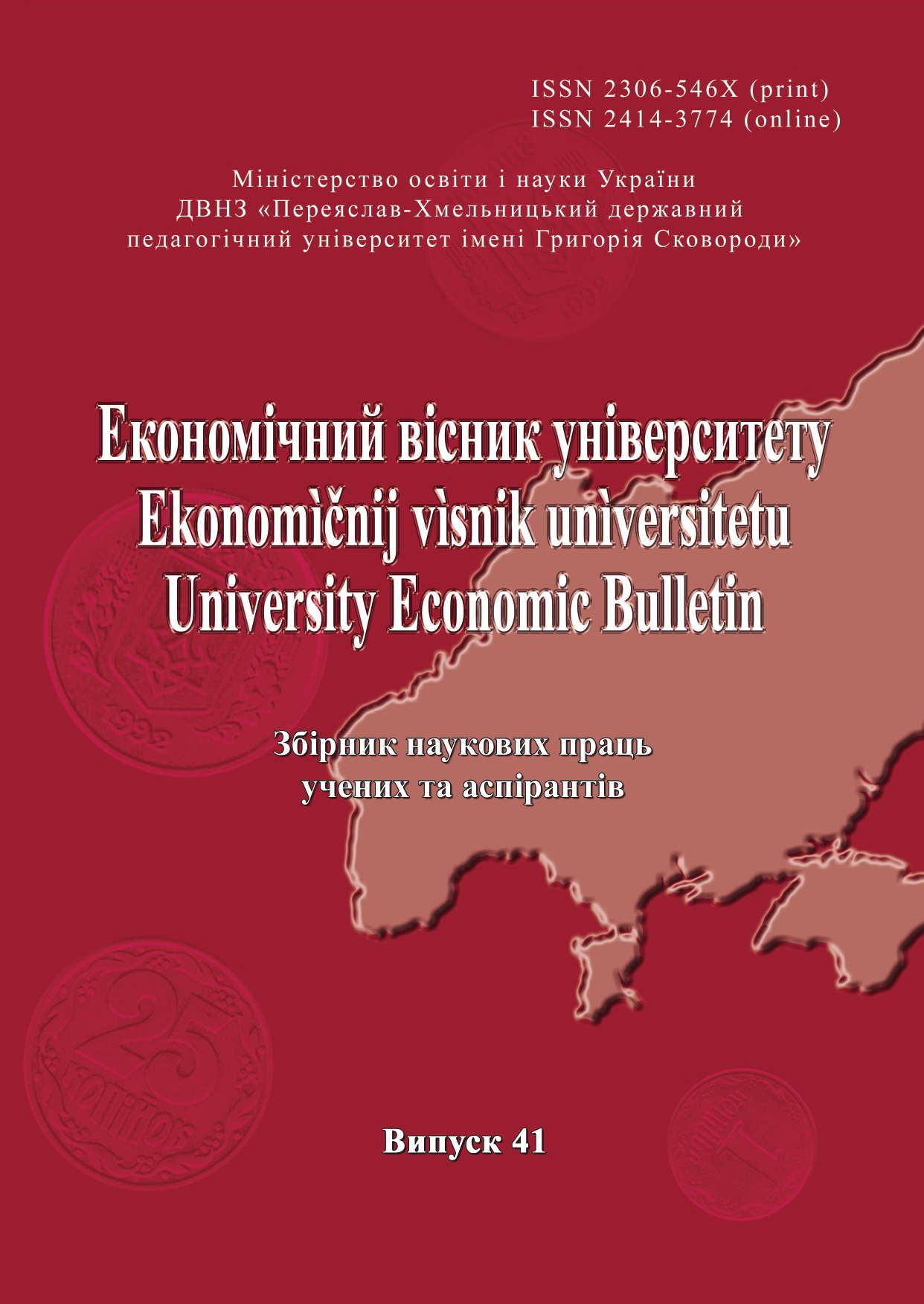Діалектика взаємозв’язку розвитку інституціональних суспільних форм функціонування економічних систем та відносин власності в аграрному секторі
Dialectics of interaction of the development of institutional social forms of economic systems and property relationships functioning in the agricultural sector
Author(s): Olga ShulgaSubject(s): National Economy, Agriculture, Socio-Economic Research
Published by: Університет Григорія Сковороди в Переяславі
Keywords: property relations; institutional social forms; agrarian sector; land relations; economic systems; contradictions
Summary/Abstract: The purpose of the article is to reveal the dialectics of the interconnection of the development of institutional social forms of the functioning of economic systems and property relations in the agrarian sector, studying the world experience of market circulation of land. In clarifying these questions dialectical, dynamic, systematic, unity of logical and historical approaches, methods of generalization, analysis and synthesis, etc. Institutional social forms of functioning of economic systems are the real forms of organization of economic activity, norms and rules of conduct of economic entities that have developed in a given society at a certain stage of its development. According to the civilization approach, three institutional social forms of functioning of economic systems can be distinguished: pre-industrial, industrial and post-industrial economical systems, which differ in their institutional frameworks for their functioning. Each of them has its own definite system of property relations, which is constantly evolving and complicated, gaining new forms of development. In general, ownership of land during the history of mankind was in its evolution, three stages (levels) of development: community - private - public property. That is, as we see, the development of property relations has an interesting tendency - in the early stages of its development, humanity used common, collective forms of ownership, later, with the development of productive forces, communal property self-denied and displaced by private property, self-development which takes place in the direction of its socialization (socialization of the nature of labor and production) and the emergence of collective forms of private property. The dialectic of the relationship between the development of institutional social forms of the functioning of economic systems and property relations in the agricultural sector is that the development of land ownership relations leads to changes and transformations in the system of economic relations, their transition to a higher stage of socio-economic development and the emergence of new social forms of functioning of economic systems. In its turn, the emergence of new institutional social forms of functioning of economic systems causes changes in the structure of ownership relations with the land, leads to the emergence and dominant position in the agrarian sector of new types and forms of ownership, reflecting the socio-economic nature of a particular economic system. On the basis of the analysis of the evolution of land ownership relations in different economic systems, one can conclude that their development is characterized by certain patterns: the development and complication of property patterns are constantly underway; Each form of ownership by its nature is historical; the emergence of a more developed form of ownership of land does not lead to the complete disappearance of the previous form of ownership; as the evolution of land ownership relations in the direction of socialization takes place, the convergence of interests of opposing classes, social groups; the development of the essential basis of property takes place in an evolutionary way, and the change in the legal form of ownership - institutional instruments; Each typical civilization is characterized by a specific for the conditions of its development, the dominant object of property, which reflects the level of development of the productive strength of human labor and the corresponding formative peculiarities of the appropriation of means and production results; the formation of private ownership of land in a post-industrial society takes place mainly through its purchase; the state regulates private ownership of land and does not allow the concentration of too large areas of land in one hand; State policy in the field of land relations is aimed at consolidating land and consolidating farms.
Journal: Економічний вісник університету
- Issue Year: 2019
- Issue No: 41
- Page Range: 35-46
- Page Count: 12
- Language: Ukrainian

